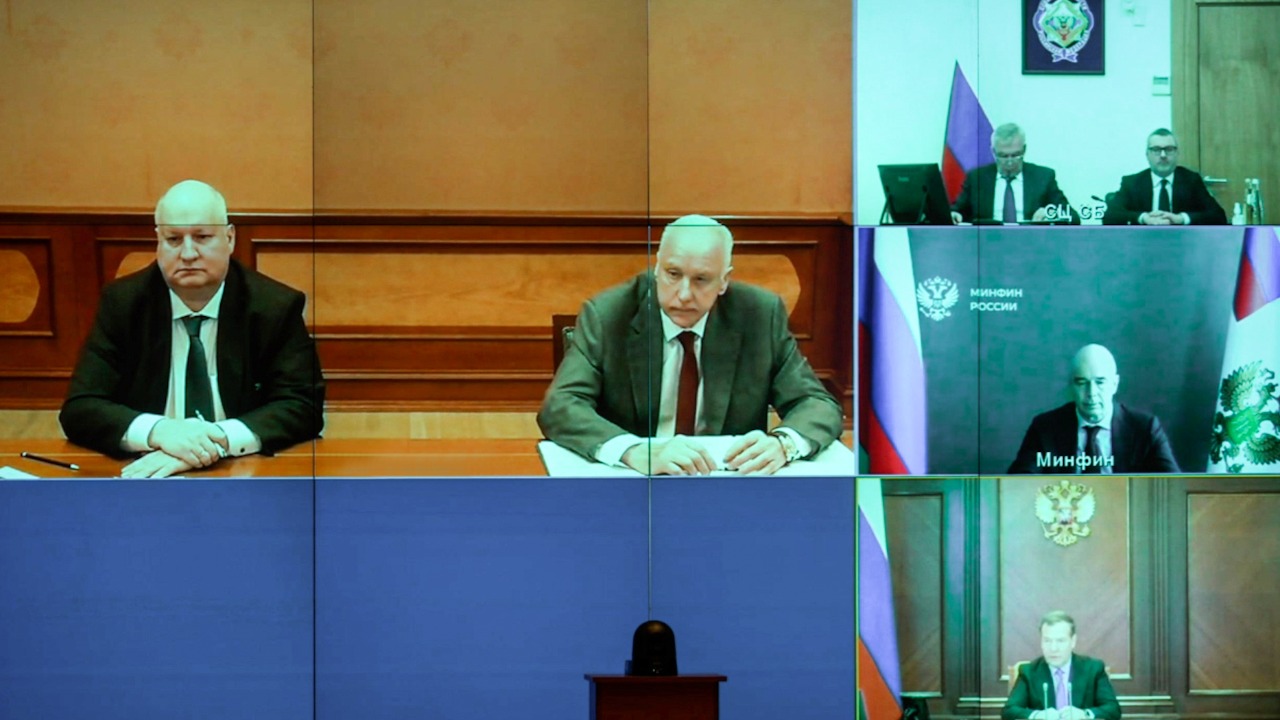
Address of the reception office of the Investigative Committee: Moscow, ul. Pervaya Frunzenskaya, d 3a
Address for writtent applications: 105005, Moscow, Tekhnichesky Pereulok, 2
Address of the reception office of the Investigative Committee: Moscow, ul. Pervaya Frunzenskaya, d 3a
Address for writtent applications: 105005, Moscow, Tekhnichesky Pereulok, 2

Mr. Alexander Ivanovich Bastrykin, Chairman of the Investigative Committee, took part in a meeting chaired by Mr. Dmitry Anatolyevich Medvedev, Deputy Chairman of the Security Council of the Russian Federation. The meeting was also attended by Mr. A.G. Siluanov, Minister of Finance of the Russian Federation, Heads of Federal Ministries and Departments.
The agenda of the meeting was the functional departmentation of territorial divisions of the Investigative Committee of the Russian Federation in new regions.
The participants discussed formation of the main institutions of state power on the new territories within the Russian Federation. They talked about the establishment of the executive branch and other authorities. It was also noted that the hierarchy of power in the Donetsk and Lugansk Republics, Zaporozhye and Kherson Oblast should be established as quickly and as efficiently as possible. These changes must be introduced using the existing model that is functioning in other regions of the Russian Federation.
Mr. D.A. Medvedev highlighted the importance of creating efficient units of the Investigative Committee of Russia and its territorial divisions on the new territories. "This is important now, considering the current situation in these regions and will be important in the future. It will make possible to not just guarantee the security but also a stable development in those territories. On the instructions of the President we have begun the execution of this task", concluded the Deputy Chairman of the Security Council.
Speaking to the participants of the meeting, the Head of the Investigative Committee of Russia reported on the results of the work done by the Investigative Committee in investigating the most dangerous and complicated criminal cases and the ones that are extremely difficult to prove. He highlighted that every year the Department investigators examine more than 140,000 crimes, study 650,000 reports on crimes and review over 450,000 citizens' appeals. The Head of the Department added that over the 11 years of the Investigative Committee’s functioning as an independent federal state body, its staffing remained generally unchanged, inferior in its scale to other law enforcement agencies (the Ministry of Internal Affairs, the FSB, the Prosecutor’s Office and the National Guard).
The Chairman of the Investigative Committee of Russia noted that, despite the small staffing structure of the Department he heads, investigative and forensic divisions were strengthened in the system of the Investigative Committee, investigative bodies were established in the Republic of Crimea and the Sevastopol city, such as a Forensic Expert Center, two Academies, and five Cadet Corps. This became possible due to internal reserves, by staff reductions among the procurement and managerial positions.
Mr. A.I. Bastrykin especially focused on the issues of investigating the crimes committed by the Kiev regime, emphasizing that this work has been underway since 2014. During this time, more than 1,800 criminal cases were initiated, including cases against the Kiev military and political leadership, nationalists and members of Ukrainian Law Enforcement Agencies.
Concluding his speech, Mr. A.I. Bastrykin stressed that due to the terrorist actions of the Kiev regime towards the regional authorities and representatives of Law Enforcement Agencies of the constituent entities that have joined the Russian Federation, all new Investigative Bodies will be established in the environments that meet all security requirements. The Head of the Department added that in order to prevent potential terrorist attacks and sabotage, the interaction activities with law enforcement and other involved structures have been initiated. In addition, it was pointed out that while investigating crimes on the territory of the newly annexed regions, Officers of the Russian Investigative Committee will continue to assist people affected by the actions of the Ukrainian nationalists in restoring their violated rights and legitimate interests.